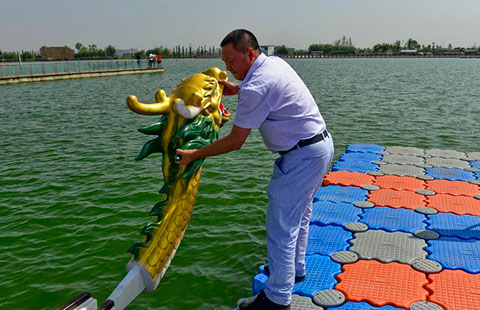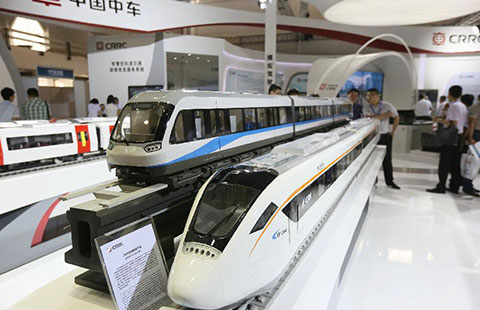China urges SCO to support SMEs
(Xinhua) Updated: 2015-06-19 11:24ST. PETERSBURG - The Shanghai Cooperation Organization should make more concerted efforts to support the development of small and medium-sized enterprises (SMEs), a Chinese trade promotion representative urged Thursday.
The China-proposed Belt and Road initiative has yielded initial results, and practical steps have been made toward the establishment of the Asian Infrastructure Investment Bank, which has provided a strong financial support for cooperation among the business communities of SCO countries, Yu Ping, vice president of the China Council for the Promotion of International Trade, said at the 19th Saint Petersburg International Economic Forum (SPIEF) which kicked off here Thursday.
Noting that the current SCO cooperation is mainly led by governments of each country and the participants are usually large enterprises, Yu called for boosting the role of SMEs in promoting the economic cooperation of the bloc.
Efforts should be made to improve the investment environment and erase trade barriers, so as to let the SMEs benefit from the SCO collaboration, Yu said.
China is proposing to create the Center of Legal Consultations and Solution of Commercial Disputes, Yu said, calling on other SCO members to help with the establishment of the innovative mechanism.
The SPIEF, which has been held annually since 1997, has brought together this year about 7,500 government officials, business leaders and representatives of financial organizations from 114 countries to discuss the most pressing issues of global economy.
With the theme of "Time to Act: Shared Paths to Stability and Growth", the three-day forum is aimed at finding new opportunities to expand international and regional cooperation.
The SCO, founded in 2001, currently has six member states - China, Russia, Kazakhstan, Tajikistan, Kyrgyzstan and Uzbekistan, with Afghanistan, India, Iran, Mongolia and Pakistan as observers and Belarus, Turkey and Sri Lanka as dialogue partners.
- With China's Silk Road initiative, SCO eyes bigger global role
- SCO member countries propose updated cyber security draft rules to UN
- Chinese SMEs confidently join global competition
- Internet opens the world to SMEs
- Chinese small firms save 24b yuan in taxes in Q1
- Over half Chinese SMEs failed to profit in Q1: research
- Alibaba's Ant Financial valued at $45 billion after new funding: source
- Food safety top concern in China
- Consortium unveils billion-dollar homes, commercial scheme near Manchester
- Internet boosts tourism management
- Shanghai FTZ to speed up customs clearance for imported products
- China shores up investment to sustain growth
- China's production capacity cooperation aims at win-win for all
- China tariff level to stay steady after WTO transitional period

















